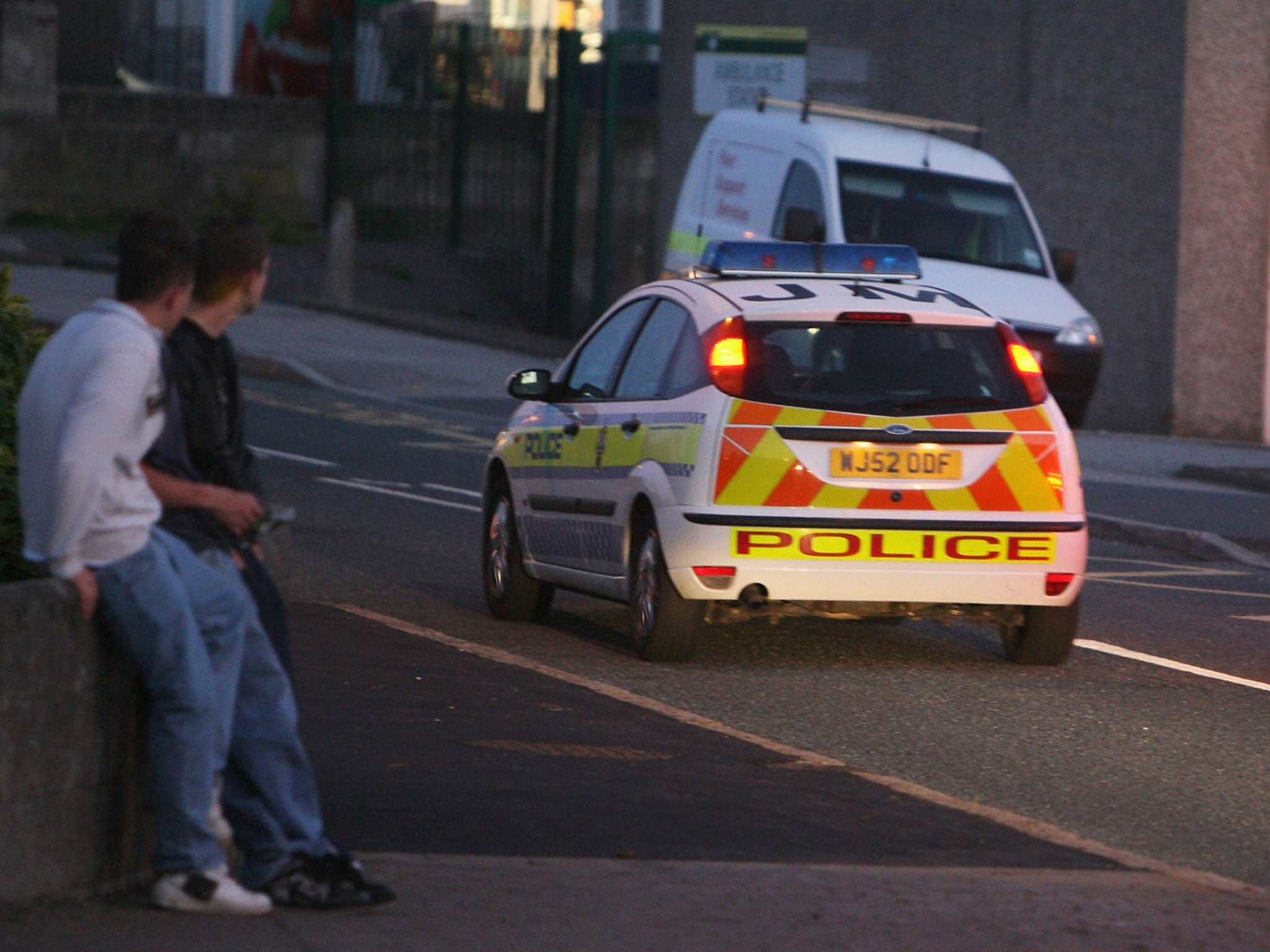Police officers waste £600,000 of taxpayers' cash putting wrong fuel in cars... despite talking fuel caps designed to warn them
Exclusive: Police officers have splashed out on warning signs and even talking fuel caps in an attempt to curb the errors

Careless police officers have wasted more than £600,000 of taxpayers' money in the past four years by filling up their patrol cars with the wrong type of fuel, The Independent has learnt.
The figures, revealed in a Freedom of Information request, relate to 37 out of the 40 police forces in England and Wales. Data from 15 of the forces was incomplete - meaning that the real cost of misfuelling is likely to amount to thousands more. The data shows that the cost of the errors since 2009 amounts to at least £600,614.
In the past, police forces have even spent money on "talking fuel caps" and warning signs in an attempt to curb the errors, but hundreds of officers are still pumping gallons of the wrong fuel into their tanks.
In 2008 Essex Police spent £4,000 on the caps, which play a recorded reminder not to use the wrong fuel every time the user fills up. But the warnings fell on deaf ears, with 150 diesel police cars being filled with petrol between 2008 and 2013, costing the force £32,726 - eight times the cost of the caps themselves.
A spokesperson for the force claimed that a year-on-year decrease in incidents meant that misfuelling had "ceased to be a matter of great concern", adding: "Over the years the force has made concerted efforts to reduce these instances of human error."
Seven years ago, North Wales Police started using bright yellow cap covers for its diesel cars - but that has not stopped officers racking up a £11,161 repair bill in the past four years alone. In November 2010, a single error cost Leicestershire police force £2,859 - enough to pay for 204 pairs of handcuffs.
Since 2009, the Metropolitan Police, which has a fleet of around 6,500 vehicles, has cost the taxpayer £288,151 in repair costs after police made 991 errors at the pump. A spokesperson said: "If a vehicle is unavailable then clearly that's not ideal, but we can work around it." They added that there was no "mandatory punishment" for officers who made such an error.
A spokesperson for Kent police, which racked up a £26,474 bill for repairs, said: "As measures by Kent Police to reduce misfuelling of vehicles have taken effect, the occasions of putting the wrong fuel in fleet vehicles has significantly reduced, with just 25 recorded instances in 2012 and only nine occasions so far in 2013."
In the last two years Staffordshire Police and Cheshire Constabulary spent £20,163 of taxpayers' money on repairing and recovering vehicles, after officers filled up 35 high-performance police cars, including a top-end BMW S30, with petrol instead of diesel.
Although pumping diesel into a petrol engine causes little damage, filling up a diesel engine with petrol can cost £5,000 per vehicle to repair. The cost is especially high if officers ignore their mistakes and drive off, circulating the incorrect fuel within the engine.
The RAC, which responds to nearly 40,000 callouts a year for misfuelling, criticised the police. "You would hope anyone driving a vehicle paid for by the tax payer would be extra careful," a spokesman said. He added that the figures "demonstrated how easy it is to use the wrong fuel in a vehicle".
According to the AA, at least 150,000 drivers fill up their cars with the wrong fuel every year. "Misfuelling seems to be associated particularly with the growth in diesel car sales. Modern diesels are so quiet it's easy to forget you're driving one, particularly if it's a second family car or hire car," a spokesman said.
Join our commenting forum
Join thought-provoking conversations, follow other Independent readers and see their replies
Comments